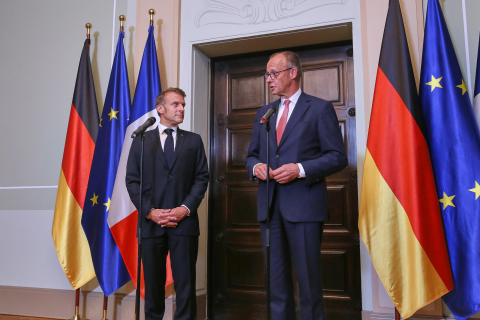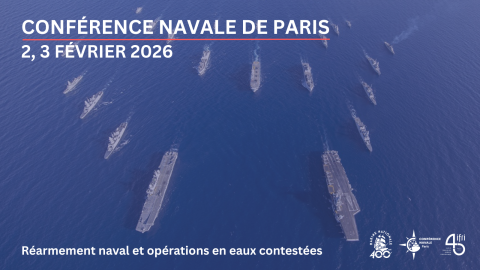
Informations pratiques
Thématiques et régions
Centres et programmes liés
Ceci est un événement réservé.
En savoir plus sur nos programmes de soutienDans le cadre de l'Ifri Energy Breakfast Roundtable, un séminaire avec Claude Breining, Head of European Affairs and Standardization Strategy, Schneider Electric Industries, Yamina Saheb, Senior Building Energy Policy Analyst, Energy Efficiency Unit, IEA, and a representative of Ademe, Agence de l'Environnement et de la Maîtrise de l'Energie (tbc). Chaired by: William C. Ramsay, chercheur, directeur du Programme Energie de l'Ifri et Jacques Lesourne, président du comité scientifique du Programme Energie de l'Ifri.
Several voices have raised doubts that the EU can reach its energy efficiency objective under the current set of policies. National Energy Efficiency Action Plans have been criticized and we must acknowledge the fact that Members have still not grasped the full potential for energy savings which could yield as much as 40% of the emissions reduction needed by 2050 to achieve the 450 ppm objective. How to re-position energy efficiency at the core of EU strategy to fight global warming? Through three different perspectives, this seminar will try to answer this question. A representative of the European Commission will present the comprehensive new Energy Efficiency Plan implemented by the European Commission. Yamina Saheb, an energy efficient expert at the IEA, will address the considerable potential for energy savings in buildings. Claude Breining of Schneider Electric will conclude the presentations with an industrial perspective.
Sujets liés
Autres événements

Paris-Berlin en 2026 : quel rôle pour le tandem franco-allemand dans un monde en crise ?
La Journée franco-allemande du 22 janvier offre l’opportunité de s’interroger sur les capacités et les limites du moteur franco-allemand : est-il encore en mesure d’entraîner l’Europe ou doit-il repenser en profondeur ses équilibres et ses ambitions ?

L’équation énergétique de l’IA en Europe : entre compétitivité et soutenabilité
À l'heure où l'Europe s'efforce à la fois de renforcer sa souveraineté énergétique et de respecter ses engagements climatiques, l'intelligence artificielle s’avère un levier stratégique. Les Européens font toutefois face à un double défi : renforcer leur compétitivité tout en maîtrisant l’empreinte énergétique des infrastructures numériques nécessaires au développement de l’IA.

Moyen-Orient : perspectives 2026
En 2025, le Moyen-Orient reste marqué par une instabilité durable. Le déchaînement de violence déclenché par l’attaque du Hamas en Israël le 7 octobre 2023 a profondément modifié les équilibres régionaux. Les tensions entre Israël, le Hamas, le Hezbollah et l'Iran persistent, faisant toujours planer le risque d'une escalade militaire. L'échec des cadres politiques existants est mis à nu par les conflits : quelle gouvernance pour les Palestiniens ? Comment remettre en marche le moteur libanais ? Que reste-t-il du système iranien ?










